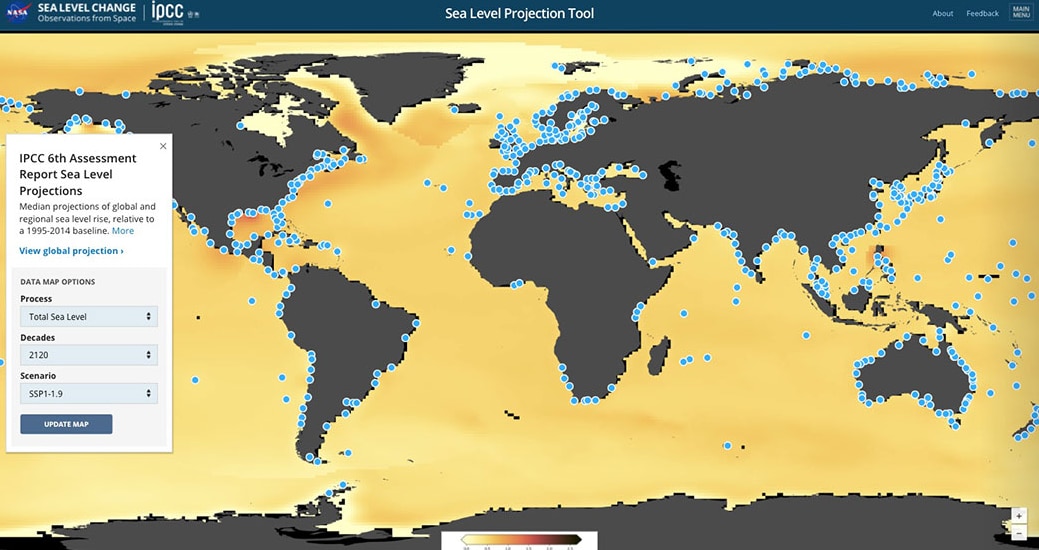Chennai, Mumbai And 10 Other Cities Likely To Sink Due To Rising Sea Level, NASA Tool Predicts
The coastal cities including Chennai, Kochi, Visakhapatnam and Mumbai are on the verge of high risk and can go underwater by three feet by the end of the century.

Chennai: Nearly 12 coastal cities of India sitting on the bank of the Indian coastline are likely to face the wrath of going underwater due to the increased risk of rising sea levels, said a report by Intergovernmental Panel on Climate Change (IPCC). The coastal cities including Chennai, Kochi, Visakhapatnam, and Mumbai face high risk and can go underwater by three feet by the end of the century.
The Sea Level Change Team at NASA has created a sea-level projection tool that makes extensive data on sea-level rise in the future from the IPCC easily accessible to the public. According to a report from NASA that has used the outcome of the IPCC report, NASA's tool predicted 12 cities including Chennai, Tuticorin, Kochin, Visakhapatnam, Khidirpur, Paradeep, Kandla, Okha, Bhavnagar, Mumbai, Mormugao, and Mangalore will face adverse reactions due to the fast increasing sea level around Asia than the global average, as per a report.
Besides, a study published in the journal, Nature Communications, in 2019 had also predicted a similar threat for Mumbai, saying it is at the risk of being submerged by 2050.

Also read: Climate change and its effect on lives: Full report | Namaste Bharat
The initial projections based on the current trends revealed that the cities will go underwater by a depth of:
Chennai: 1.87 feet
Tuticorin: 1.9 feet
Visakhapatnam: 1.77 feet
Cochin: 2.32 feet
Mangalore: 1.87 feet
Mumbai: 1.90 feet
Okha: 1.96 feet
Kandla: 1.87 feet
Bhavnagar: 2.70 feet
Paradip: 1.93 feet
Khidirpur: 0.49 feet
However, if the projected rate of climate change continues then these cities may likely go underwater by at least three feet within the century. The increase in sea levels will also adversely increase the melting of glaciers in the Himalayas and will directly or indirectly affect over a billion people.
Related Video
Tamannaah opens up on making her Tamil digital debut with 'November Story' | SBS Originals





































